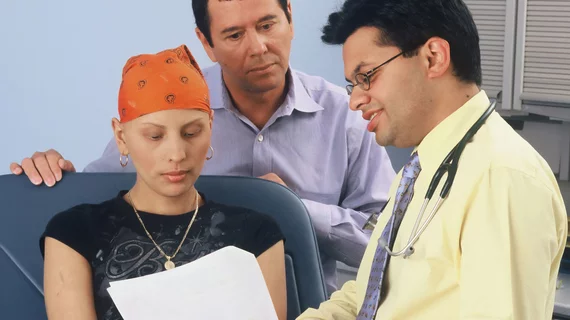Up first for the Mayo Clinic–Google Health alliance: Better radiation therapy through AI
A little more than a year after inking a 10-year pact on digital healthcare development, Mayo Clinic and Google Health have launched their first major research project together. Interestingly, it directly involves AI.
The two announced Oct. 28 they’ll be building AI and machine learning tools to optimize radiation treatment plans for cancer patients.
Specifically, Mayo medical clinical experts and medical physicists will work with Google healthcare AI specialists to train and test an algorithm for automatically distinguishing tumor margins from adjacent healthy tissue.
The fast precision will allow radiation oncologists to confidently fine-tune frequency and dosage planning of radiation therapy for optimal outcomes.
The initial phase of this initial project will focus on cancers of the head and neck. In these areas, contouring is especially challenging because many delicate anatomic structures are squeezed into tight spaces.
“If organs are not properly identified, the radiation plan may not protect these critical structures or adequately treat the tumor,” Chris Beltran, PhD, tells Mayo Clinic News Network. Beltran, one of the lead investigators on the project, chairs the division of medical physics at Mayo Clinic Florida.
Because radiation treatment planning is one of the most labor-intensive and data-rich disciplines in medicine, Beltran adds, radiation oncology is “ripe if not overdue for application of AI-augmented methods, particularly deep-learning-based approaches.”
Cían Hughes, MB, ChB, a Google Health informaticist and research scientist, comments that radiation oncologists today “painstakingly draw lines around sensitive organs like eyes, salivary glands and the spinal cord to make sure radiation beams avoid these areas.”
The standard protocol works well, he adds, but it can take a “really long time”—six hours or more, in cases—to get it precisely right.
Hughes notes AI’s potential to streamline parts of the contouring workflow, which should get patients to radiation therapy sooner and finished with it faster, improving the overall experience.
What’s more, remarks Nadia Laack, MD, chair of the radiation oncology at Mayo Clinic in Rochester and a principal investigator on the project, applying AI and machine learning “may also help to alleviate radiation oncology workforce shortages throughout the world and decrease the variability in the quality of care patients receive.”

